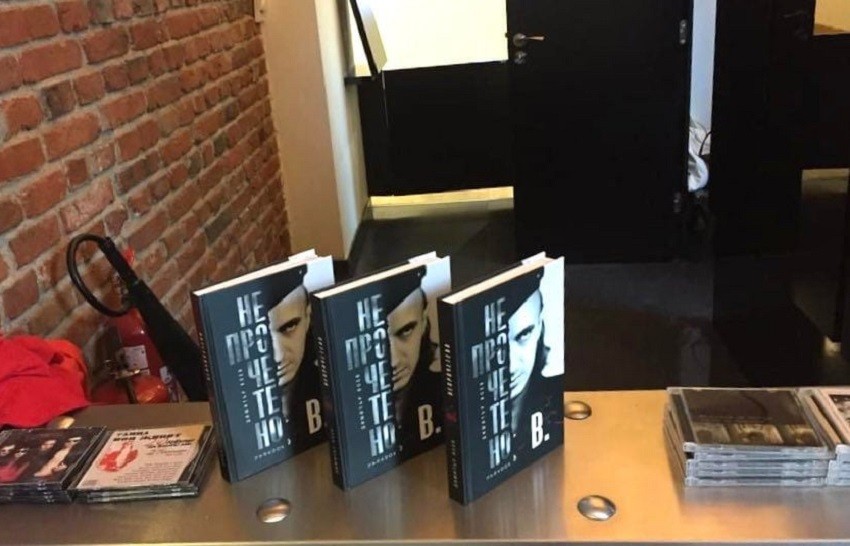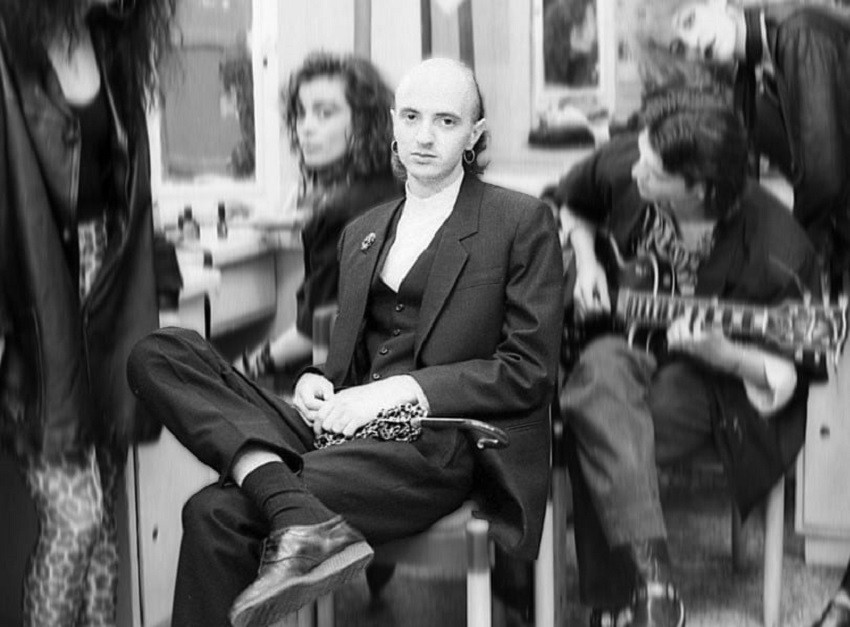Representative of a special kind of people - the non-conformists fighting against uncritical following of group norms, Dimitar Voev is one of the artistic symbols of the Bulgarian transition to democracy. A poet, musician, composer, he was a man ahead of his time, who remained at the age of 27 forever.
Born in 1965 in Sofia, Voev started playing music when he was in school, going through several different bands. In 1985 together with guitarist Vasil Gyurov he founded the first post-punk band in Bulgaria - "Kale". The band had a single big performance in 1987 at the first rock festival in the Summer Theater in Sofia. In the middle of their participation the microphones were turned off because of the band’s lyrics that were innapropriate for the regime's ears and the band were removed from the stage. However, the audience was so impressed that long after the performance was abruptly stopped, they continued to chant the band’s name. In the same year Dimitar Voev formed a new band called "Vhod B", later renamed "New Generation" and becoming the face of cold wave in the Bulgarian music underground.

Dimitar Voev's lyrics became fuel for a whole generation that was dreaming of freedom and change; not only political and social change, but also internal one. The musician welcomed the longed-for democracy, but just two years later, on September 5, 1992, he lost the battle against cancer. However, his art remains forever to recall of the "youth revolt".

Several events in recent weeks have made us talk once again about the brave spirit and legacy of Dimitar Voev. The book “Neprocheteno” (Unread) has been recently published. It includes more than 100 unpublished texts and more than 80 photographs and drawings. They were part of 12 notebooks that belonged to the musician, from the period 1981 to 1992, preserved by his wife Nelly Nedeva-Voeva. Author of the book is Voev’s young daughter Dimitra Voeva, who was born five months after his death.
"This book brings us much closer to Voev's inner world. We know him well as a musician and rebel. It is no coincidence that he is defined as a dissident, as a bright representative of the counterculture in Bulgaria, but we often pay less attention to the intimate side of things that excited him and to the problems that he was not afraid to name and point to in his poetry.”

Dimitra says that her father's revolt was not blindly directed to the country's oppressive political regime before 1989 but was also a reaction against conformism, against the consumer society and the lack of courage and memory. This is something that becomes clear from the documentary film "Voev" by director Bilyana Kirilova and screenwriters Neda Milanova and Valeria Stefanova-Stoykova. The film premiered at the 26th Sofia Film Fest in mid-March. It took six years to shoot "Voev" but the end result is a piece of memory not only about a person, but also about the Bulgarian reality.
"I am a fan of his music. I felt very close to him and thought of him as a supporter, a colleague in the art that I wanted to create and that was the reason why I made this film," screenwriter Bilyana Kirilova has told BNR. It is an interesting fact that the greatest hit of the "Atlas" band - the song "Kukla", is based on a poem by Dimitar Voev that he wrote when he was just 18 years old. Three years ago, the song was included in Bulgarian music textbooks for the seventh grade.

"He is an absolute hero of his time and when I say that, I do not mean only the years in which he lived and worked. He is extremely relevant today. People like him are endangered species, unfortunately, but there is always someone to keep this spark alive," Bilyana Kirilova says.
Meanwhile, the Committee on Culture and Education at the Sofia Municipal Council have unanimously accepted the proposal to name an alley in Sofia’s Borisova Gradina after Dimitar Voev.
Author: Vessela Krasteva / based on interviews by Iva Doichinova, BNR-Radio Sofia and Petar Volgin, BNR "Horizont"/
English: Alexander Markov
Photos: Facebook/voevthemovie, Facebook/FondaciaDimitrVoevNovaGeneracia"More slowly, take it easy" ... sings Stefan Valdobrev, and this refrain has been repeated by Bulgarians in the country and abroad for several years in the hope of reducing the speed at which we turn the arrows of our daily lives... Stefan..
"Christmas Hymn" is among the newest Bulgarian songs dedicated to the Christmas holidays. It is performed by Georgi Kostadinov together with the young singers from the Diamond vocal group. The idea came to its author, Rafi Zhamakortsyan, a year ago,..
Christmas is a very special holiday for Bulgarian pop singer Rumiana Kotseva . For years in a row, she gathers her family and friends in her home - cherished moments that warm her days until next Christmas. This year, the pop singer gave an emotional..
JOEF Gipsy Kings Family have recorded "Fuego Del Amor" - a song with Bulgarian singer Sandra Alexandrova. The story of the song actually started three..

+359 2 9336 661
